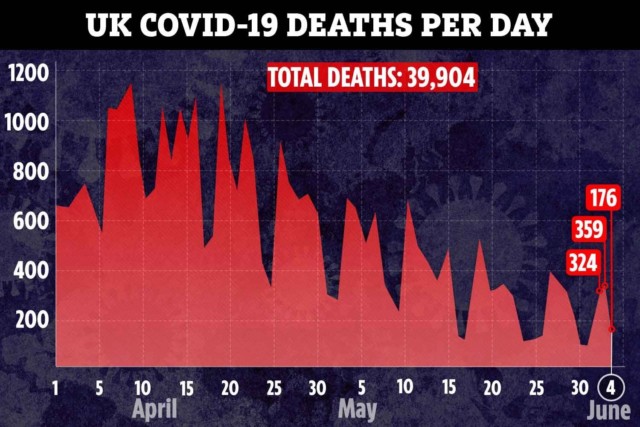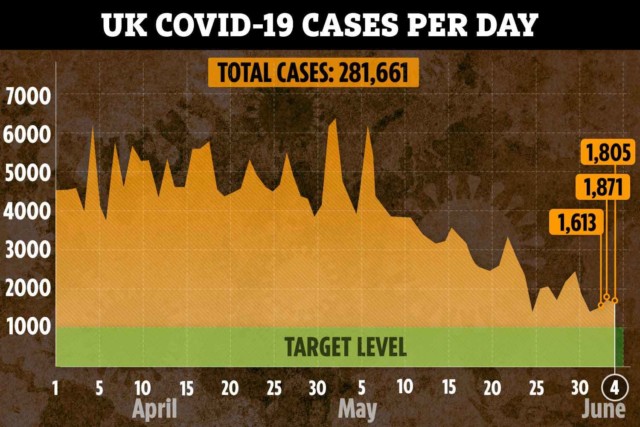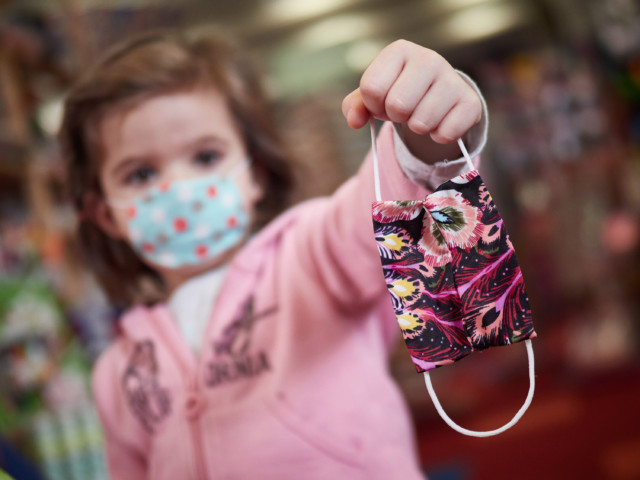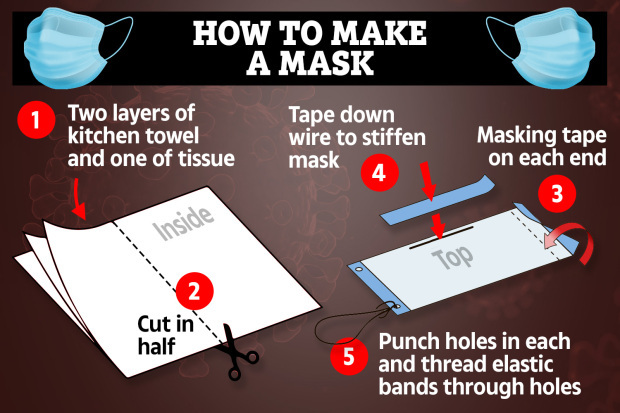CLOTH face coverings are less safe than surgical face masks at stopping the spread of coronavirus, SAGE documents reveal.
But the Scientific Advisory Group for Emergencies (SAGE) warned they could still help stop transmission of the virus particularly when combined with social distancing.
The documents said: “Face masks can be used to protect the wearer (protective) or to prevent the wearer from spreading infection (source control).
“Face masks are less effective, and are no substitute for, other transmission control measures such as case isolation, hand hygiene and social distancing.”
Masks will be compulsory on public transport from June 15 to try and stop the spread of the deadly virus where social distancing is impossible.
But people have been told not to buy medical grade masks so they don’t deprive NHS and other key workers of critical personal protective equipment.
The documents said: “Cloth masks have a lower protective effect than surgical face masks or respirators and may have a lower source control effect.
The scientists said the evidence on using face masks so infected people did not spread the virus to others was still “inconclusive”.
They said: “There are indirect data and weak direct evidence that use of face masks by symptomatic individuals may reduce transmissions from them.”
As many as 40 per cent of new infections are caused by people before they even develop symptoms.
“Due to increasing evidence that persons with mild or no symptoms can contribute to the spread of COVID-19, face masks and other face covers may be considered a means of source control complementary to other measures already in place to reduce the transmission of COVID-19.”
The concern over taking away supplies from healthcare workers was stressed in the documents.
They said: “Medical face masks are currently in short supply.
“In view of the current pressure to the health systems, their use by healthcare workers needs to be clearly prioritise and protected.
The Government u-turned on advising widespread use of face masks last month, particularly after fears over getting PPE to critical workers reached fever-pitch.
But after the announcement they would be made mandatory on public transport, the British Medical Association has demanded they be made compulsory now and in more places than just public transport.
Dr Chaand Nagpaul said: “Given there remains a considerable risk of infection, with thousands of new cases every day, wearing masks can reduce the spread of the virus.
“Not only will this afford greater protection to the public, importantly it will protect the lives of the staff working on public transport who, as evidence suggests, are at greater risk of infection.”












